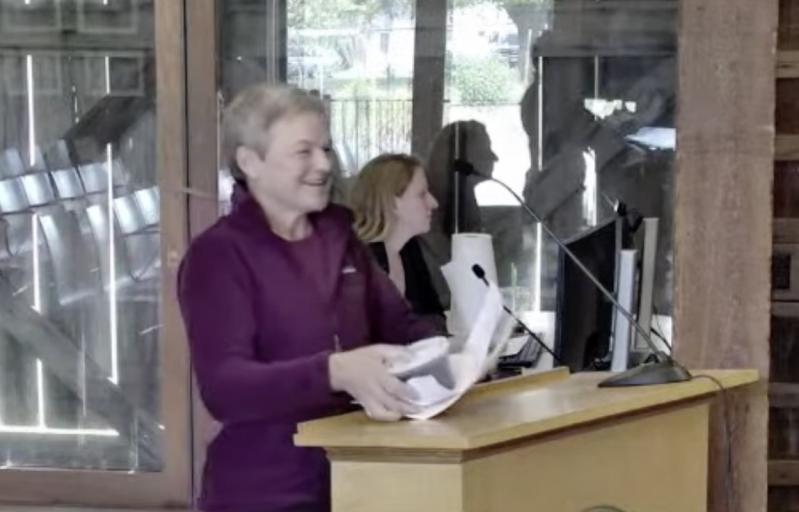Some 2,782 pounds of food scraps were diverted from landfills or incinerators, eliminating the equivalent of 1,310 pounds of coal burned or 3,025 miles driven, by a pilot composting program launched over the summer, the East Hampton Town Board was told on Tuesday.
East Hampton Compost, as the program is known, is a collaboration of the town and ReWild Long Island, a nonprofit devoted to sustainable landscaping, biodiversity, and climate resilience. The program’s aim is to divert residential food scraps from landfills or incinerators and reuse them to create compost that can be returned to the soil. Fifty households participated in the pilot effort, setting aside vegetable and fruit scraps, coffee grounds and tea leaves, eggshells, and cut flowers and taking them for collection at the farmers markets in Springs (between July 15 to Sept. 30) and Sag Harbor (from July 22 to Sept. 23). The scraps were composted at the town’s recycling center on Springs-Fireplace Road, where leaves and other vegetation are already composted.
Nutrient-rich compost from food scraps can revitalize soil, and participating in composting can reduce a household’s carbon footprint.
On Tuesday, Gloria Frazee, a co-leader of ReWild Long Island’s local chapter and a member of the town’s energy and sustainability committee, reported the results of the pilot program to the town board, pronouncing it a success.
The volume of scraps collected grew over the course of the program, Ms. Frazee said, from 56.25 pounds collected in the program’s first week, in July, to 425 pounds collected in the eighth week, in September. One night during the fourth week, the Surf Lodge in Montauk collected scraps from its restaurant and contributed 55 pounds to the total. The program, Ms. Frazee said, could be implemented in other “interested restaurants.”
“It is really about building a community within our town,” she said.
Diminishing greenhouse-gas emissions is an important benefit of composting. Food waste typically accounts for around 30 percent of a garbage truck’s load, Ms. Frazee said. Trucking discarded food to an incinerator, and its incineration, both contribute to the “huge carbon footprint” of the United States, a country in which each household wastes an estimated $1,850 of food purchases annually. In addition, food waste in landfills releases methane, a potent greenhouse gas, as it slowly decomposes. Ms. Frazee encouraged better meal planning and better storage of food.
Compost, she said, is “black gold, full of nutrients,” a beneficial alternative to commercial fertilizer. It acts like a sponge, holding water and reducing stormwater runoff and the need for irrigation. Soil amended with compost is healthier, so the broader environment is, too — with additional benefits for pollinators and birds.
The small East Hampton Compost pilot made a big difference, she said. “Imagine what we could do if we could grow.” She proposed that the program be expanded to more days of the week and more drop-off locations, extending its reach to Montauk and to drop-off locations at places such as farm stands and yoga studios. She also spoke of educational opportunities. A number of teachers had requested a class or presentation for students, she told the board, and she is working on curriculum materials.
More volunteers and more business partnerships would be needed for an expanded program, Ms. Frazee said, as well as an improved system for moving the collected scraps from collection site to compost site: “What we really, really need to grow from the town would be the basic transportation from drop-off locations to the town recycling center.”
“You are that sparkplug that makes a difference,” Councilwoman Sylvia Overby told Ms. Frazee. The program “is going to make a difference for our community.”
Information on the program is available at easthamptoncompost.org.




